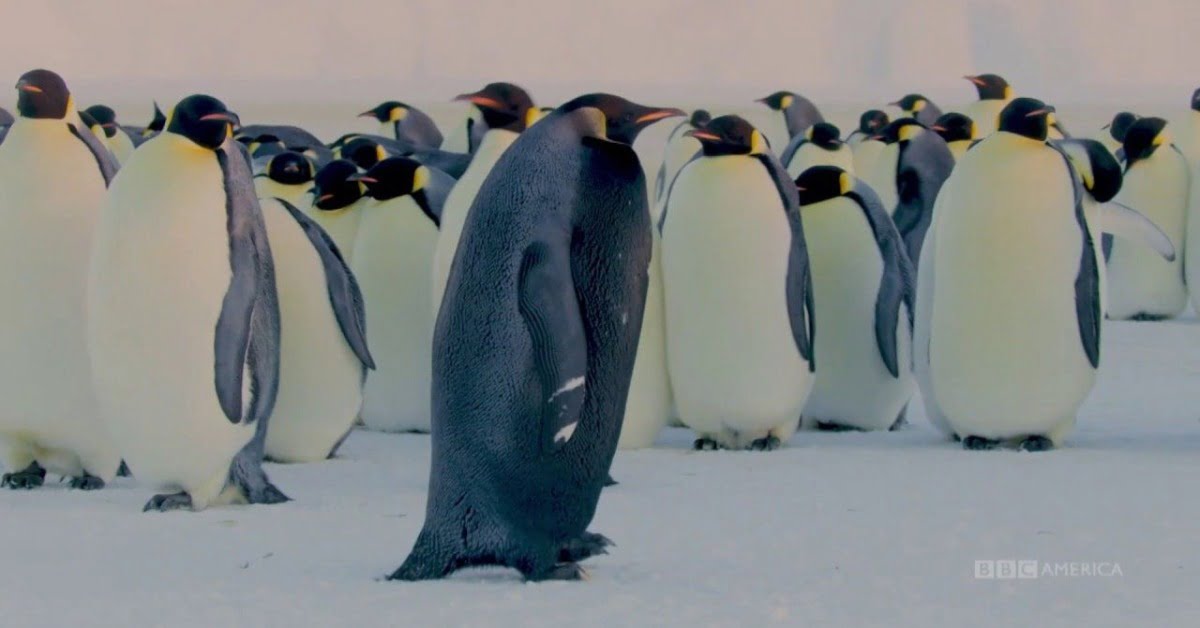Luckily black never goes out of style, but who knows what it holds for this penguin?

BBC camera crews working on the phenomenal wildlife series Dynasties have captured some never-before-seen footage of a penguin with a black belly in a sea of white, like a rebel at a white tie event.
The penguin in question has a rare genetic mutation called melanism, which makes skin, fur, and feathers black due to a high concentration of the pigment melanin. It’s basically the opposite of albinism, which is caused by a lack of pigment.
“Is this the rarest penguin on Earth?” BBC America asks in the video. Well, possibly. While partial melanism has been obeserved in other penguins – Adelie, chinstrap, gentoo, macaroni, and royal – it mostly occurs in King penguins apparently. As far as we know, it’s never been seen in emperor penguins before, and all-black penguins are extremely rare anyway.
In fact, biologists reckon even partial melanism could be as rare as one in a quarter million, and since there’s very little documentation or scientific study of all-black penguins, full melanism is likely to be even rarer.
“He or she could be the only one of its kind,” the video states.
Adult emperors have black heads and wings, gray backs, and white bellies, with their distinctive yellow-orange markings around the neck. This particular penguin spotted when the Dynasties team were filming the Emperor episode in Antarctica is almost entirely black, lacking the odd patch of white on its chest and wing tips, and the splash of yellow around its neck.
For some animals, standing out of the crowd can be an advantage (like for this cow, for example). For most of them, however, it can be a disaster.
Firstly, a mutation like melanism can make animals more easy to spot by predators. In this penguin’s case, not just because it may be more visible on the ice, but because penguins’ white bellies make them look invisible to predators swimming below by helping them blend in with the light from the surface.
Neverthless, as the BBC points out, this particular specimen isn’t doing too badly, having survived into adulthood.
In fact, according to the footage the penguin is doing just fine. However, filmed amongst hundreds of its besuited brethren and looking healthy, it appeared to show signs of looking for a mate while huddling for warmth with the other penguins.
And here comes the second point: it must be really difficult to find a mate when all other penguins are different – which probably makes this specimen the loneliest penguin in the world.
